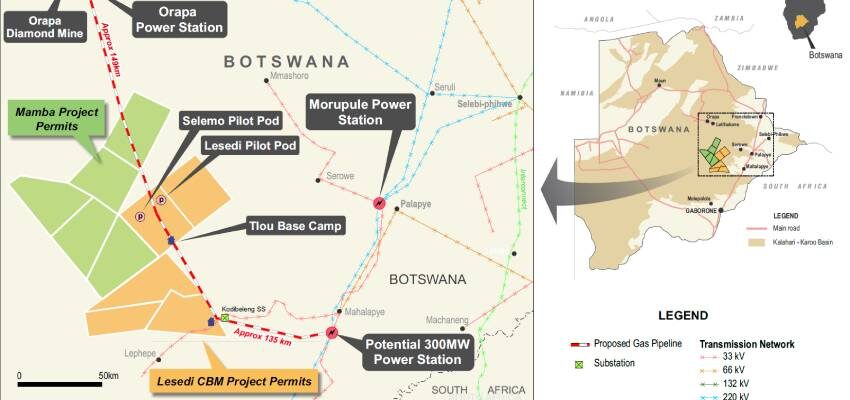Funding update on Lesedi power project
Botswana, Gaborone: Tlou Energy, developers of the Lesedi power project in Botswana, have announced a funding update for their clean energy project.

Image source: Mining & Travel
Botswana, Gaborone: Tlou Energy, developers of the Lesedi power project in Botswana, have announced a funding update for their clean energy project.
The project, utilising gas and solar power that will deliver cleaner electricity in Botswana and southern Africa, has entered into advanced project finance discussions with a Botswana based entity.
According to the company: “The most advanced project finance discussions are currently with a very reputable Botswana based entity. Due to confidentiality the company is unable to name the entity concerned at this time. However, we can confirm that their investment committee and board have discussed and are favourably disposed to Tlou’s proposal. They are now proceeding to get a third-party technical review of the project as part of their due diligence process. Once this report is assessed an investment decision can be made.”
“We already have a great relationship with this group and look forward to working closely with them to get the process concluded successfully and as soon as possible. This is an outstanding project and with the right partners we believe it can be an overwhelming success both for Botswana and our shareholders,” said Tony Gilby, managing director of Tlou Energy.
The project, which will be developed in two phases, includes a phase one project involving the construction of transmission lines, substations, grid connection and electricity generators. There is also the potential to drill additional gas wells.
The transmission line will run from the Lesedi project to Serowe, a town approximately 100 km from the plant and the nearest grid connection point. Initial generation is proposed to be up to 2 MW at estimated cost of $10 M.
Phase two is aimed at expanding electricity generation up to 10 MW and will require additional gas wells and the purchase of additional electricity generation assets. It is anticipated that phase two of the project will cost $20 M. Ultimately, the company plans to expand the project beyond 10 MW.
Source: ESI Africa




